Computational Thinking Unplugged
In this lesson, students will learn concepts such as Algorithm, Decompose, Abstraction and Pattern Matching that create a Computational Thinking foundation.
Additional details
| Year band(s) | 3-4, 5-6 |
|---|---|
| Content type | Lesson ideas |
| Format | Web page |
| Core and overarching concepts | Computational thinking |
| Australian Curriculum Digital Technologies code(s) |
AC9TDI4P01
Define problems with given design criteria and by co-creating user stories
AC9TDI4P02
Follow and describe algorithms involving sequencing, comparison operators (branching) and iteration
AC9TDI6P01
Define problems with given or co developed design criteria and by creating user stories |
| Keywords | Computational Thinking, Algorithm, Decompose, Abstraction, Pattern recognition |
| Organisation | code.org |
| Copyright | 2005 Computer Science Unplugged. Free-for-education material. |
Related resources
-

Understanding digital systems (Years 3-4)
Simple ideas for learning about digital systems in the classroom.
-
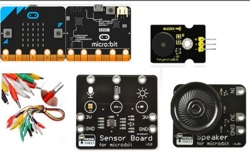
Classroom ideas: Micro:bit Environmental Measurement (visual and general-purpose programming) (Years 5-8)
Investigating environmental data with Micro:bits: This tutorial shows the coding needed for digital solutions of some environmental issues that can be created using pseudocode and visual programming.
-
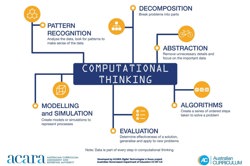
Computational thinking poster
A poster/infographic that gives a brief overview of the concepts related to computational thinking.
-
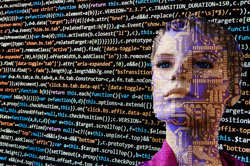
Robots, data and computational thinking (Years 2-4)
This classroom resource comprises four worksheets to accompany a lesson on data and computational thinking. These materials are designed for teachers to use simple line-following robots (Ozobots) to engage students in the computational thinking process and working with data.
-

Collecting data about litter in the community (Years 3-4)
The litter students find in the local environment can provide a good source of data. The interpretation of this data can help students answer a range of inquiry questions.
-
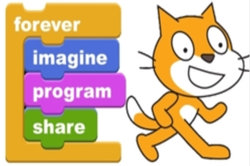
Computing at School: Resources
Browse the curriculum resources which are tried and classroom tested resources submitted by primary teachers to support Computing for early to middle primary school. Requires free registration.
-
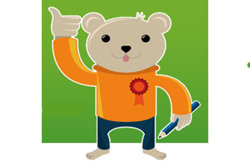
CAS Barefoot
A broad collection of online resources to support teachers to develop and implement computational thinking, concepts and computer programming. Free log in required to access materials.
-
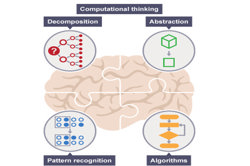
Computational Thinking – 6 learner guides
This site offers a range of resources to help teach computational thinking and its components.
